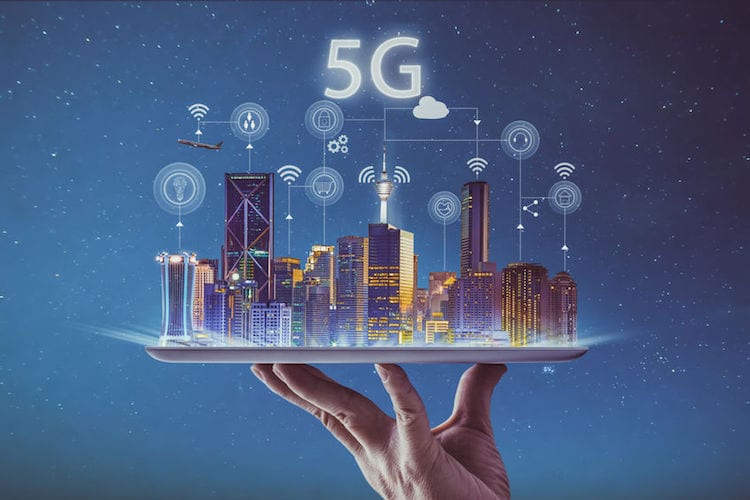5G Rolling Out But Taking Away Location Privacy
Over the past year, there has been a lot of hullabaloo over data privacy and online safety of users.

5G Rolling Out But Taking Away Location Privacy
Everybody Tracks You
Everyone wants more privacy and security online, as well as the best and latest in technology.
The honest truth is that experiencing the best of technology comes at a price, and it’s sacrificing privacy. The peaceful coexistence of privacy and technology is just not possible anymore.
Everyone, from your internet service provider to Google to Facebook, knows about you online. They know your favorite sites, they know what you last purchased online, and they also know all your sensitive data, such as credit card details and bank account number.
Even though everyone wants privacy, they aren’t willing to stop using services that compromise their data. This has only been creating more problems as the days go by.
Google Maps Messing up
A few months ago, Google Maps was found to be tracking the location of the user even with the feature turned off. This led to Google being charged with privacy violation because location is among the most identifying information about a person.
However, people willingly share their location data with Google on a daily basis, because Maps is a highly useful application.
It’s still possible to protect your location against tracking, but in a short while, this will be impossible. All because of the new 5G technology that’s about to enter the US.
What’s 5G?
Cellular networks keep upgrading every few years. When people first started using the mobile phone, it was the second generation cellular network, which could boast of neither excellent speed nor notable connectivity.
That’s what people were used to back then because they had no other choice. When 3G was introduced, people took to it like crazy, because of how fast and smooth it was, as compared to the older 2G network.
Most high-end phones have been running on 4G connectivity since the last couple of years. While 4G is the latest available cellular network now and is faster and smoother than all previous versions, it is definitely not here to stay. Very soon, the US will get to experience the 5th generation cellular network, also called 5G.
For obvious reasons, people are excited to know what 5G will bring. Those used to the 4G network will definitely upgrade to 5G for all the benefits it will bring.
5G connectivity will transform the way devices connect to the internet. 5G is that technological leap that will help achieve the smart cities that we dream of.
However, everything comes at a price, and the 5G connectivity is no exception. Even as people get to experience better connectivity and super fast speed, they will have to give up their location privacy.
Privacy Concerns of 5G
The fifth-generation cellular network has been in the works for a while and is supposed to be rolled out soon in the US. Whenever one generation is rolled out, the next is in the making. After 5G is rolled out, don’t be surprised to get 6G and 7G in a few years.
However, every time technology upgrades, users must pay a price for using it. And the biggest price we pay for using high-speed services is our data privacy.
When you consent to use an online service, you are giving up your online privacy. Even when you think you are safe, you are being tracked and your data surreptitiously collected and sent to third party advertisers.
A New Trend
In recent years, people have resorted to using virtual private networks and proxy servers to remain safe online, but there are some compromises that are always made in order to be able to access our favorite online services.
For instance, your internet service provider tracks your activities, collects your data and sells it to third parties, and there’s nothing you can do about it if you want to keep using your phone and internet.
Similarly, we know that Google collects user data and sells it to third parties, but there’s nothing we can do, because that’s the price we pay for using a free service.
Even though there’s been a lot of uproar over user data collection, people still continue to use these services because they can’t do without it. It’s the same case with the new 5G connectivity rolling out. People will have to give up their location privacy if they want to use 5G- there’s simply no other way.
This has led to a lot of noise around social media about how dangerous this is for any user. However, it doesn’t seem like the threats would stop anyone from trying out the new technology.
The Cost of Technology
There is an important reason why 5G doesn’t come with location privacy, and that is coverage area. A 4G tower could cover a large area, up to a mile. The 5G network has a much smaller coverage area, and it also cannot pass through walls or buildings to get indoors.
This means that not only will a large number of 5G need to be placed within close proximity to one another, but they will also have to be placed indoors in order to have network connectivity inside buildings. This is completely different from what we have so long known.
So how does this affect location privacy? Every time your device connects to a 5G tower, your mobile network can tell exactly where you are located, thanks to the proximity to the tower.
Not only that, but everything from your most frequented locations to your movements, can be tracked in real time.





